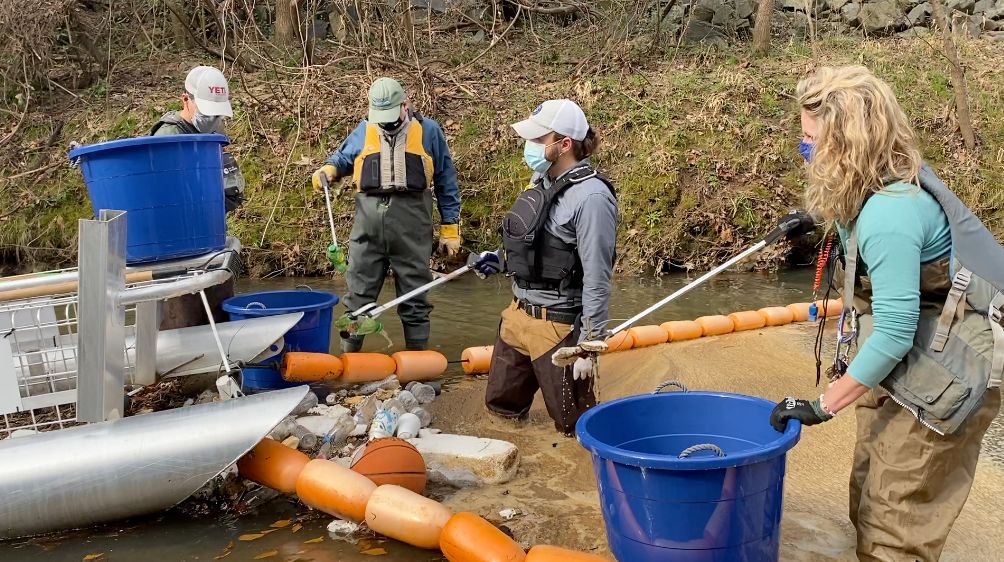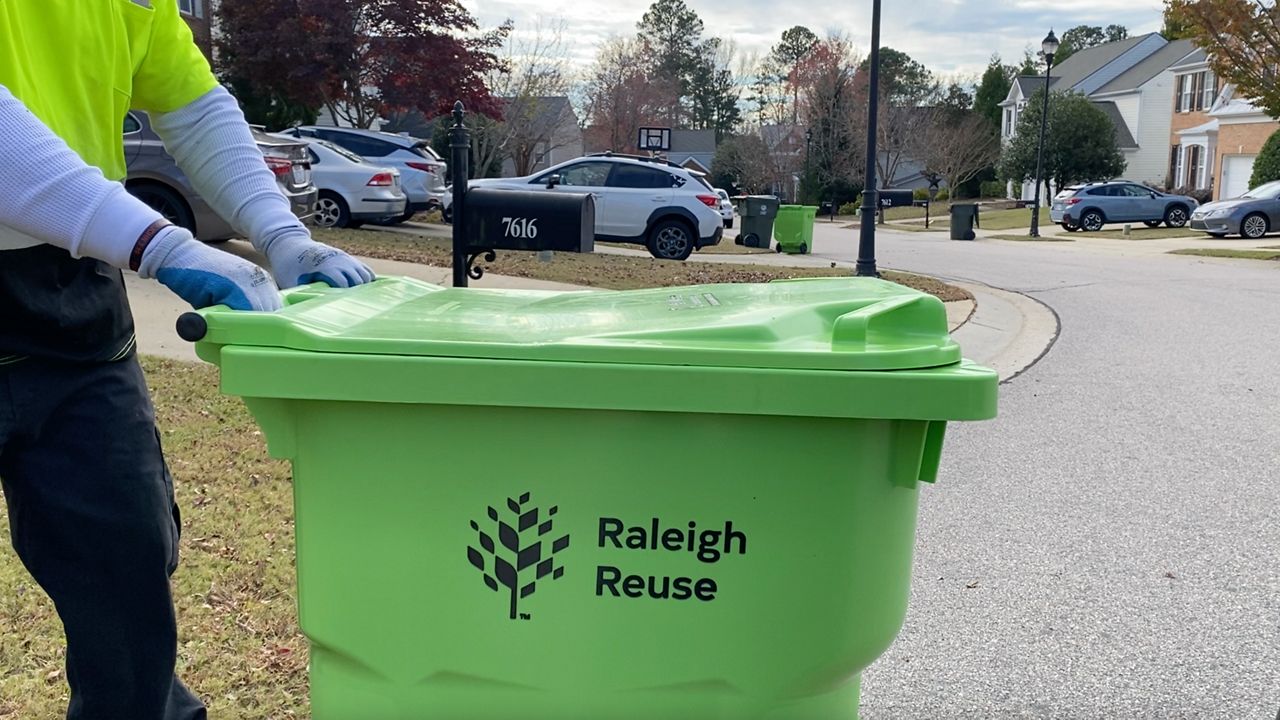CHARLOTTE, N.C. – About a year ago the city of Charlotte received a device to help collect trash from the rivers.
A "Litter Gitter" is a floating collection device that helps stop trash from flowing further downriver. Once a week, the engagement manager for the Catawba Riverkeeper Foundation, Greg Nance, comes out to the creeks and streams of Charlotte to help organize a clean-up.
“Usually after it has rained quite a bit, it will end up with a bunch of trash and debris inside of it,” Nance says. “In the Litter Gitters, it’s mostly plastic bottles.”
They collected enough trash in one week to fill about four buckets.
“I would say styrofoam is the most tedious thing because it is so hard to break down,” Nance says.
The Litter Gitter has helped them collect a lot of trash.
“We have collected about 2,000 lbs. now and when you consider we have only collected floating trash, that is a lot,” Catawba Riverkeeper Brandon Jones says.

But the device doesn’t get everything. Workers usually spend a few hours cleaning the banks of the rivers. In the last few months, they've seen much more PPE washing up on the banks, like gloves and masks.
The worry is that these items could break down into microplastics.
“Eventually, those make it into the ecosystem and they are really bad for the wildlife, and bad for us and the animals here,” Jones says.
The workers don’t just clean up the rivers, they also analyze the items collected.
“We’ve got 42 different categories that items get sorted into,” Nance says.
The list helps them figure out where the trash is coming from. They say the majority of the litter in the creek people didn’t purposely throw in there.
“It fell out of their car, or blew out the back of their truck, or it’s in a parking lot somewhere,” Jones says. “When it rains, that goes into the storm drains. What people don’t always know is that those storm drains connect right to the creeks.”
They say it’s littering that could easily be prevented.
“I try to not let it get to me, but let it motivate me instead,” Nance says.
Any litter that is not cleaned up in our rivers and creeks eventually leads to the oceans. A report in the Environmental Science and Technology journal estimates that 129 billion face masks are disposed of monthly across the world and this is resulting in widespread environmental contamination. The report stated, “There is a need to assess alternatives that allow reductions of PPE and reinforce awareness on the proper public use and disposal.”










